 What should I be doing right now? Writing sub plans. What am I doing? GETTING SO EXCITED ABOUT ACTFL! I just mapped out my days. I didn't want to cram too much in, because I want to make sure I have time to meet with and talk to folks. So here's what I'm focusing on:
What are YOU looking forward to? If you can't come, what do you want to learn/hear about/see?
Bises, Allison
1 Comment
Believe it or not, I’m a teacher who doesn’t love the summer. Sure, it’s always nice to have a break from the intense days of the school year. But I have always struggled when I don’t have structure in my life. Strange as it might sound, I need someone else to tell where I need to be and when; the break in the routine of the school year that occurs during the summer has always posed a challenge for me and can wreak havoc on my emotional well-being. Here enters summer PD. 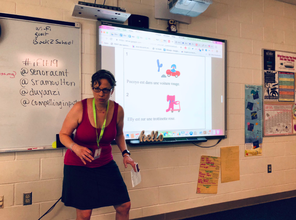 I am participating in six different conferences this summer and the third one, iFLT, just wrapped up in St. Petersburg, Florida. The past five days have been enlightening, empowering, exhausting, and engaging. I had opportunities to work with teachers in so many different capacities, and I relish them all. Not only was I able to share my favorite teaching technique, Movie Talk (or ClipChat), I discussed strategies on reading in the elementary language classroom as well as approaches to making the most of a FLES class despite the challenges many FLES teachers face. Additionally, I had the honor and privilege to coach some incredible teachers and collaborate with a sub-cohort in the beginning track. As I sit on the plane and reflect on the week, I wanted to share my two biggest take-aways. 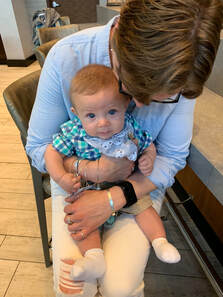 Take-away 1.5 - a little Memphis Roy love Take-away 1.5 - a little Memphis Roy love 1. While there were so many incredibly masterful teachers at Gibbs High School this week, it is important for ALL of use to remember: there’s only one of each of us. The biggest part of my personality that comes out in my teaching lines most closely with the inimitable Maestra Loca and her energy, Nonetheless, I often find myself trying to channel my inner Grant Boulanger, who possesses a flawless ability to be calm and connect with students simultaneously. I strive to be a blend of those two wiz teachers, with a solid dose of Justin Slocum Bailey’s animation and expressiveness, but I know I can’t BE any of them. (NB-These specific qualities of these teachers are not necessarily what I could consider each of their strengths. I just believe that these particular traits, combined together, create the teacher identity I think works for me and my students.) Each of us needs to take the skills and strengths that we admire in other teachers and create our own unique teacher persona. You do YOU, that’s what your students need! 2. “Repetition and novelty are not mutually exclusive.” As teachers of acquisition-driven instruction, we are aware of the importance of repetition. Simultaneously the brain craves novelty (as Carol Gaab taught me). I have developed ways in which I can “do” the “same thing” multiple times with my classes, but it’s never really the same. My students can read a text after doing a Movie Talk and follow with activities with sentence strips from the text, putting them in order or associating them with images from the video. Throw in a dictation and finish up with a Socrative assessment, and I have recycled and reused the text in multiple ways, allowing my students to process the text differently each time. (If you're not sure what Socrative is, check it out; it's a free website that has some amazing assessment tools. You can watch my tutorial video here.) Above is an outline of how I structure working with texts with my younger students. It’s pretty formulaic but I strongly believe that this scaffolded progression of activities allows for the slow and deliberate transfer of output from the teacher to the student. When my students can describe pictures without any prompting from me or read sentences in a story book they are illustrating and know what they need to draw because they have worked with the material so much in different ways, I can see that they are really learning and acquiring language.
Once my plane lands Boston in an hour, it will be less than 24 hours until I find myself at Logan once again to take off for conference #4 in Agen, France. This is yet another opportunity to see other teachers in action and pull what I love from their teaching and personalities to create me. May the rest of your summer, regardless of how much is left, bring you the restoration you deserve! Bises. I AM SO EXCITED ABOUT THIS CONFERENCE
The intimate setting allows participants to interact with each other and the presenters in casual settings. And boy, do we have some powerhouses! The fact that I am able to put my name along side Justin Slocum Bailey, Joey Dziedzic, Tina Hargaden, Linda Li, well, gosh all hemlock!
We will also have some evening activities planned! And it's in my neck of the woods (the Upper CT River Valley, or the Upper Valley), so come and hang out chez moi! Soo...here are the details! Registration: options for lunch and no lunch Lodging: Comfort Inn in WRJ, discount available; you must call (you CANNOT make the reservation online) before 1 July and reference code Express Fluency Conference) Travel info: Manchester NH airport: 1 hr 20 min Boston Logan: 2+ hours Burlington VT: 1.5 hrs The Dartmouth Coach is an easy way to get from Logan to the UV. Drop-offs in Lebanon, NH and at the Hanover Inn in Hanover, NH. (It has snacks and a movie!) There is free public transportation in the Upper Valley with Advance Transit. There is a line that goes to the Comfort Inn from the Hanover Inn. It is also possible to get from the Comfort Inn to the HACTC, where the conference is, but does require a line change. There is also an Enterprise Car Rental in WRJ, close to the Comfort Inn. LOCAL ATTRACTIONS AND SITES (all sites are in Vermont, unless otherwise noted) Montshire Museum of Science (Norwich) King Arthur Flour (Norwich) VINS-Vermont Institute of Natural Science (Quechee) Hood Museum of Art (Hanover, NH) Dartmouth College (Hanover, NH) Quechee Antique Mall (Quechee) Simon Pearce glassblowing (Quechee) Quechee Gorge (Quechee) Main St. Museum (WRJ) Billing's Farm (Woodstock) Dan and Whit's(Norwich) Upper Valley Aquatic Center (WRJ) Saint Gauden's Memorial (Cornish, NH) Hopkins Center (Hanover, NH) Here is a list of additional activities! HIKES Dartmouth Outing Club website Appalachian Trail (NH/VT) Mt. Tom (Woodstock) Boston Lot Lake (Lebanon, NH) Hurricane Hill (WRJ) Hazen Trail (WRJ) Ballard Trail (Norwich) Milt Frye Nature Area (Norwich) RESTAURANTS Here are some of my favorites! Tuckerbox (WRJ): coffee shop and Turkish food Thyme (WRJ) Trail Break Taps and Tacos (WRJ) Phnom Pehn (WRJ): Vietnamese Yama (Lebanon, NH; the Hanover location is no longer open): sushi and Japanese Carpenter and Main (Norwich) Molly's (Hanover, NH): very family friendly Tuk Tuk (Hanover, NH): Thai Market Table (Hanover, NH) Ramunto's Brick and Brew (Hanover, NH) Salt Hill Pub (Hanover, Lebanon, and W. Lebanon, NH): three locations in the UV Elixir (WRJ): my favorite bar! 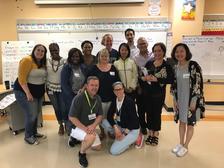 After returning from iFLT18 this year, I noticed a different post-conference feeling. When I first began my CI journey eight years ago, I remember leaving big conferences with a full and exhausted brain. There was so much information and so many amazing ideas, I felt like I was walking around in a stupor. What should my take-aways be? What's most important? Where do I begin?!?! It was critical for me to remember to start small: implement one or two specific ideas into my lessons. Every journey begins with a single step, right? At the same time, the big ideas presented at these conferences helped me to develop my philosophy and shift my approach to my teaching. I knew what I wanted to do, and why I wanted to do it. Nonetheless, I was still overwhelmed. Now I feel like I'm at a point where I walk away from days upon days of sessions and workshops energized. Seeing teachers in action allowed me to reflect on my own practice. And yes, I certainly had the doubt that Megan Hayes mentions in her post-iFLT blog post. But when I flip the post-conference-thinking coin, I find excitement the other side. Apprenticing under the amazing Paul Kirschling during adult French beginner language lab was one of the most powerful experiences of my career. I received direct feedback on my teaching from a seasoned CI French teacher. (How often does THAT happen?) My co-apprentice teacher, Blair Richards, wrote up her reflections on her blog.  I have some concrete changes I would like to make in my classroom when the students return. Last year was a particularly challenging year for me, so I'm excited to feel optimism and enthusiasm about teaching filling my soul. The pre-school adrenaline has begun to pump through my veins. (But don't worry, I have PLENTY of summer left to enjoy, including celebrating my 40th birthday.)  I hope that all of you who attended iFLT this year (thank you Teri and Carol!) can find that excitement in all of that post-conference "overwhelmedness." For those of you who were not able to attend, it's a unique and powerful conferences and I hope you will have the chance one day soon. (And New Englanders/Northeasterners who are unable travel thousands of miles, there's a wonderful opportunity right around the corner at Express Fluency's summer teacher training in Vermont. I'll be there this year, dragging Movie Talk with me! You'll also be able to see Annabelle Allen and Justin Slocum-Bailey in action (two amazing teachers whom I'm lucky to call dear friends), as well as Martina Bex, Tina Hargaden, and Mike Peto. In the meantime, may the CI force be with you. Bisous. This year at the VFLA annual conference, I was lucky enough to "share the stage" with the amazing Laurie Clarcq. After lunch, I gave a short follow-up to a session I had done last year at the VFLA conference on Movie Talk. The focus this year was parallel storylines, which I had seen for the first time at NECTFL in February. Mike Coxon, Eric Herman, and Blaine Ray did an amazing demo of this technique that I knew would change my teaching. So I thought and thought, and decided to do this activity using "Runaway" as my Movie Talk video. (Check out that video here.) My dad was going to come into my classroom to film this, and I was planning on using that footage as the focus of my presentation. But, it was March, and I live in Vermont, and Mother Nature decided to throw a curve ball. We had a huge snow storm the day I was going to do a MT with a parallel storyline for the first time, and alas, no school. I had no idea what to do until I was talking to a (non language teacher) friend who suggested I do the lesson with live teacher actors as a demo at the conference since I didn't have a video of my class. It ended up being genius. Teachers still had the chance to see this technique in action, and I had a "dry run" before actually trying it with my sixth graders. It was relatively successful: 80% of those who responded to our evaluation strongly agreed or agreed with the statement "I found Allison's presentation helpful and useful." One respondent said, "Thank you for the reminder of how this can work. I love your demonstrations and your energy." The next day, Laurie spent the day working with me and several colleagues. She had a great idea: I should teach the lesson I had intended on filming with my students prior to the conference that day. I agreed to take over from my substitute for one class, and Laurie and my colleagues were able to watch the lesson in action. Here's a video of the class; you may want to read the rest of this post before watching the video. The lesson unfolded this way: I prepped the vocabulary the way I normally (see this old video from last year, when I was doing a more traditional MovieTalk lesson).
Once I PQA-ed and gestured the vocabulary important to the video, I showed the first bit of the video and did some questioning, as I normally do. Then, I stopped. I chose two student actors, who would act out a story that paralleled the plot of the MT video. We had watched as far as the refrigerator's handle falling off. We then carried on, abandoning the original video and shifting to traditional TPRS story-asking. Once we had come to the end of the plot for our new story, we finished the video. I did not pause and ask questions while we watched the video, as I normally do. Here's where things got interesting. I did some of my traditional follow-up activities: true/false, Pictionary, put the events in chronological order. We then moved on to a reading of the original video. (You can check one of those out here.) I did this slightly differently this time. Normally, I write the reading and do activities with it. This time, I had students retell the plot of the video as I wrote it down. I projected the story on my SmartBoard, so students could see in real time what I was writing. (I have three classes, and we ended up with three different readings. If you click here, you'll find a folder containing all three versions.) During the next class, we did the same thing with the plot of the parallel storyline that students acted out. In class, I then had students draw storyboards of the parallel storylines (We used a sheet that's 3x3, and I gave students two minutes per square. I wasn't aiming for amazing drawings, just something they could use for their homework.) Students had two homework assignments: 1-show the video to a family member and narrate during the viewing, and 2-retell the parallel story using their storyboards as a "script." However, it was at this point that things took an interesting turn. When students were retelling the parallel storyline to me and I was typing it, I realized that it seemed a lot like a script. So, we began to modify it. And it took off. We ended up creating a whole play from our script. In two of the classes, each student had a different role: actor, narrator, or, in one class, producer. In the third class, every student wanted to act, so we did three different versions of the same script. Here's one of the first kinds of videos, with all student actors. I'm still in the process of finishing these videos, but I'll let you know when they're all done.
Sometimes you just have to run with what interests the students. I'll admit, there was a lot more English spoken than I would have liked during the actual filming of the videos, but seeing the students' enthusiasm and engagement made me realize how worth it it was to "go with the flow." I'd love to hear your thoughts on this, or how you've used MT and parallel story lines in your classes, successfully or not! Merci! |
AuthorAllison Litten, the 2019 VFLA TOY, teaches French at the Marion Cross School, a public PreK-6 school in Norwich, Vermont. This is her twenty-third year teaching, and twentieth at Marion Cross. Archives
May 2023
Categories
All
|



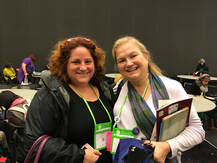
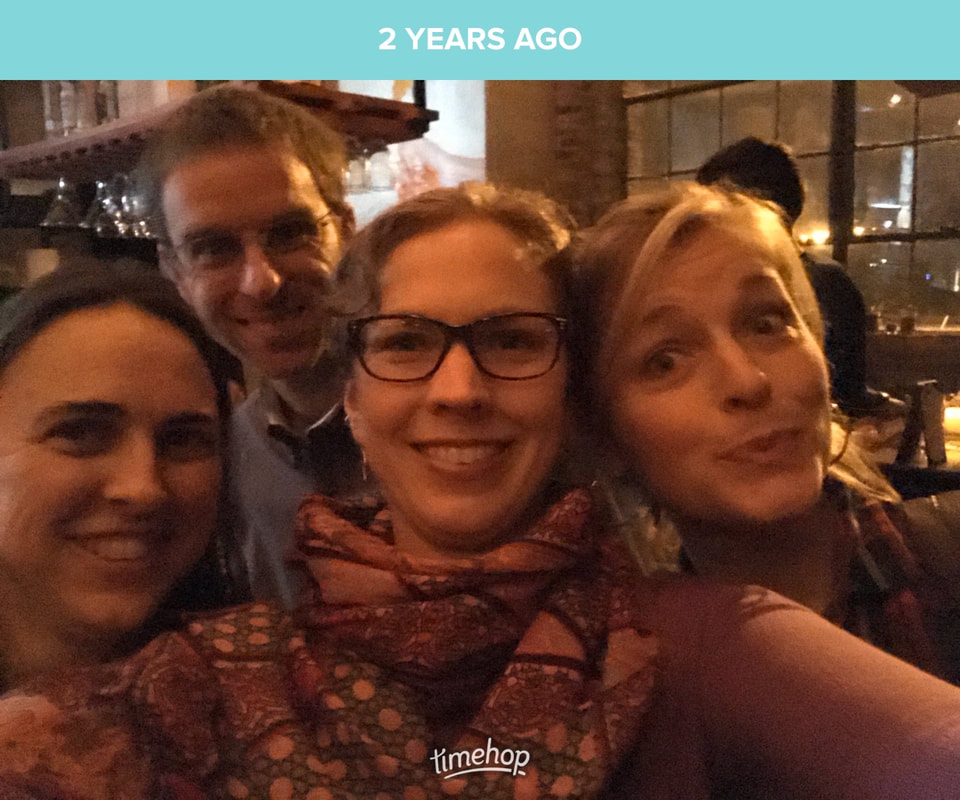
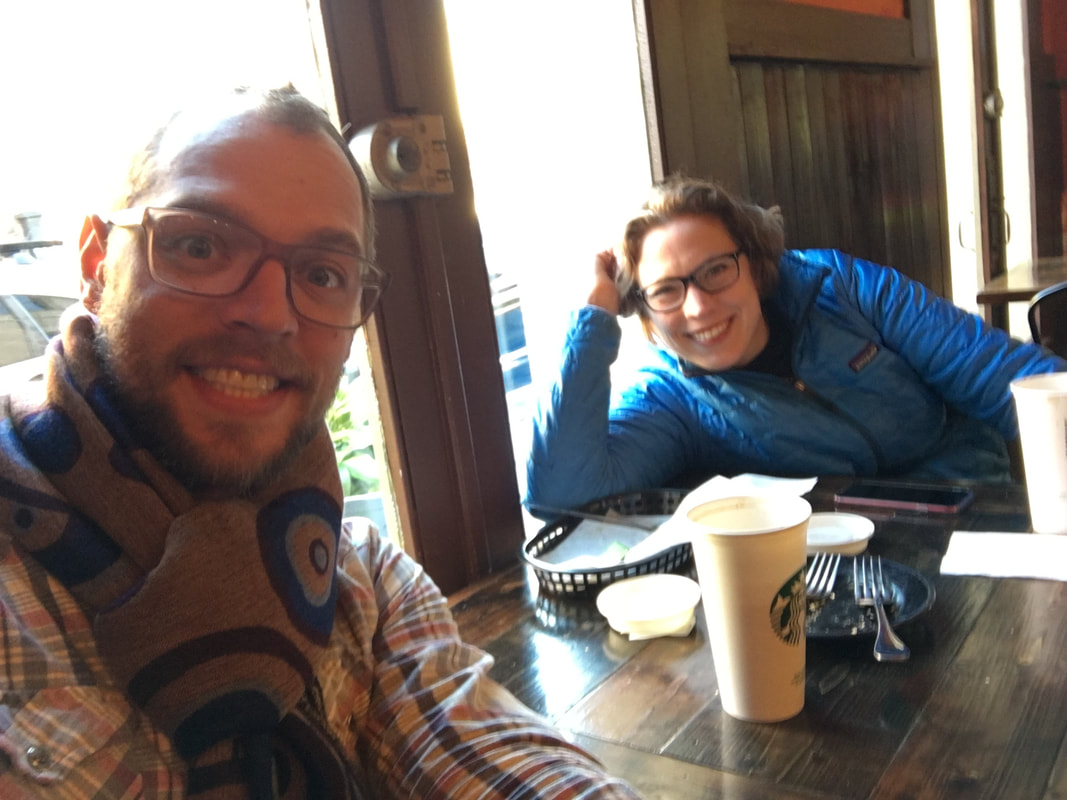
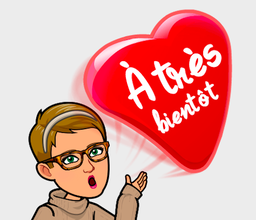
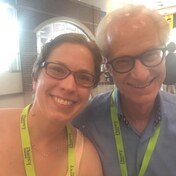
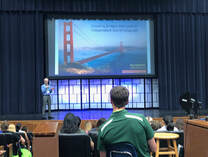
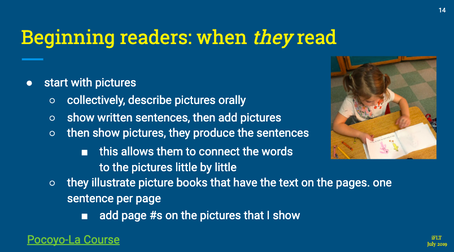
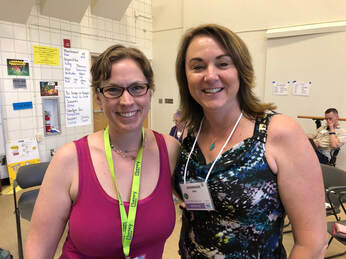
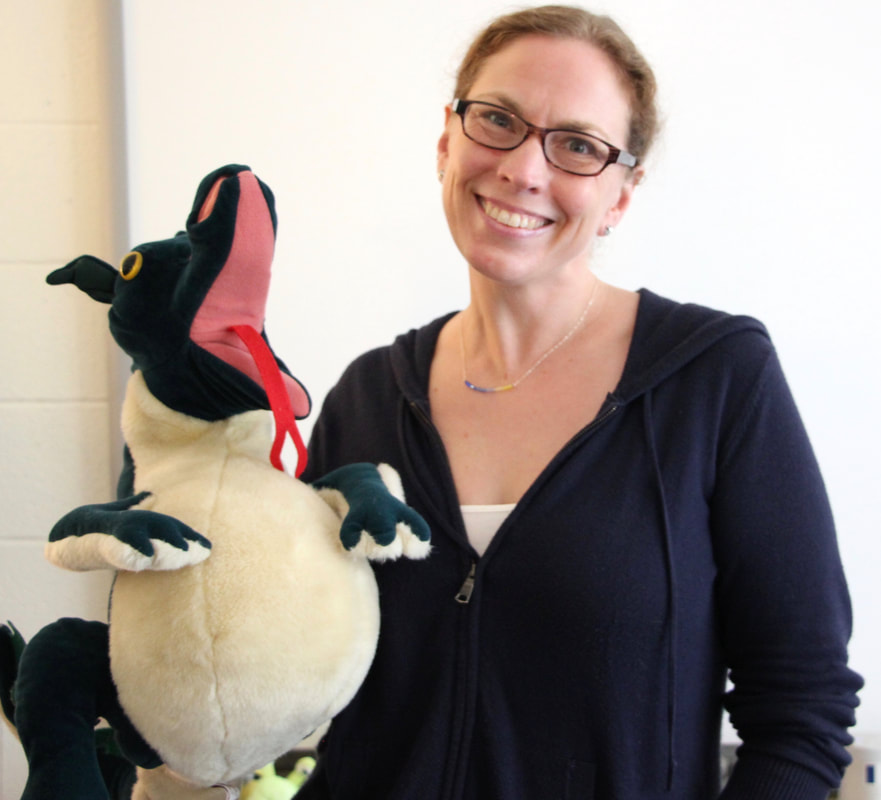
 RSS Feed
RSS Feed
